Lenovo North America Interim President On Keeping Business From HP And Dell, Smart Office, And The 'High-Margin' Opportunity In Workstations

Teismann On The Record
After Lenovo introduced pricing changes on Oct. 1 that jeopardized PC margins for some VARs, CRN spoke with partners who said the moves would ultimately result in them shifting business to competitors like HP Inc. and Dell Technologies. But Lenovo responded by working with solution providers to accommodate the pricing on existing contracts, preserving hundreds of individual deals, executives said. Now, Christian Teismann, who is the interim president for Lenovo North America, said Lenovo PC sales did not take a hit in the wake of the pricing overhaul. "It's now in effect for six weeks basically, but we are not seeing there is a slowdown in how the channel is driving our product," Teismann said this week. He added: "I have no concern that we have any issues [related] to our competition, quite frankly, based on the channel structure."
Teismann, who also heads the Enterprise Business Segment for Lenovo's PCs and smart devices division, discussed the changes with CRN at Lenovo's North American headquarters in Morrisville, N.C. In addition, he spoke about what's next for the company's ThinkPad line of devices, the arrival of new smart office products in Lenovo's portfolio, and the opportunities for partners around Lenovo's workstation products such as the ThinkStation P320 Tiny.
What follows is a portion of Teismann's conversation with CRN.

In Q3, Gartner reported that Lenovo lost U.S. market share in PCs to competitors including HP and Dell. Does that worry you?
Growing in North America for us [means] really we want to grow the revenue. If we grow [sales of] units--what is very often used for market-share comparison -- it's nice if they grow as well. But it is for us not essential. And we want to grow revenue by bringing more valuable offerings to the market. If you see where we are growing the most, it is in the high-quality products. It's in the premium product space -- it's in things like workstations, detachables. We are not necessarily chasing the low end of the market. We do chase the low end of the market if it makes business sense, and we are clearly aware that the kind of earning opportunities that you have on, as an example, Chromebooks, are not the same as you have on premium ThinkPads. But we don't want to chase market share just for the sake of chasing market share.

Regarding the changes in October, what was your thinking for why those were needed?
I believe we wanted to achieve two major things. One is predictability, in terms of what the margin opportunity really is for partners, and also for us to really have the right pricing approach with the channel and also to the end customer. And second, I believe it is also some simplification that we wanted to drive. And quite frankly, in some cases we felt it was not entirely balanced between how the channel programs were rewarding [partners], in terms of the results they were ultimately driving. So that's why I asked the team to take a look at this, and created a new channel program structure that I believe is improving on the number of areas significantly, in terms of earning opportunities. But it also is balancing a little bit more on other ones. I believe, combined with additional growth initiatives that we are driving together with the channel, where we are very tailored with the channel partners on driving joint investments into the market for joint share growth, I think it's a better balance structure.

Are you seeing any sales impact from the October changes?
I would not say there has been across-the-board impact. I believe there are areas where we had to work with the channel on certain contracts to make sure [they could be preserved] in the new structure, and we have done this. And [channel chief] Sammy [Kinlaw] and his team are really covering the entire channel stack with his team. And we are very responsive, I believe, where the program changes have created an area where we needed to focus on. But we've seen also significant amount of partners growing with us, with the new program. It's now in effect for six weeks basically, but we are not seeing there is a slowdown in how the channel is driving our product.

Partner sales are growing because now it's more of an even playing field?
I believe the partners who are growing with us appreciate the more predictable payout structure, and [are] growing and investing in these kind of businesses. Hand in hand with the new channel program structure, we also looked very carefully at how we manage channel inventory. And we felt we had a couple of places where our channel inventory was too high. And high channel inventory never creates a good situation. Because you ultimately do not have an aligned pace between sales out and sales in, which is always our objective. So at the same time we made some decisions around re-balancing channel inventory. And we quite frankly stopped driving sales of products where we felt there is enough inventory in the channel already. And that's what you see in some of the market-share numbers. And we did that deliberately.

Some partners we’ve heard from were saying, 'This just makes me want to look more at HP and Dell because they haven't changed their incentives.' Is that a concern for you?
First of all, every partner who is saying that, it hurts me. Because ultimately we want to drive joint market success with the channel, with the right products and with the right structure, in terms of earning opportunities. And I believe we are providing this. I honestly believe there might be cases where a channel partner might feel that way on a specific situation, and we are working through this. I think what we are trying to achieve is more predictability and longer-term sustainable partnerships -- where we have a very strong partner community who is driving the value that we are trying to create. And I have no concern that we have any issues [related] to our competition, quite frankly, based on the channel structure.

It's often predicted that the PC is about to die out, but why do you think the predictions haven't been coming true?
I believe that the PC is transforming in the moment. We call it a transformation that goes from personal computing to personalized computing. But it still does require very strong computing capabilities at your hand. What we've seen is that we've been able to reinvent the traditional PC in a way that is competing very effectively against new form factors. We've seen that people want to have two devices -- usually not three devices. People have a phone, and they always will have a phone. And people have a device that is more for input instead of just consumption. We have been able to fairly quickly adapt the PC into taking the lessons learned [from] why these devices have been successful -- cloud-focused, [touch] input -- we've been adapting this on the PCs. We believe that the PC of the future is a product that is extremely adaptive in terms of how you interact with the product.
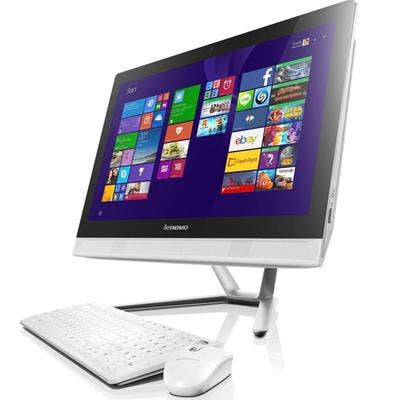
What does that translate to, in terms of the PC of the future?
You can speak to it, you can write on it, you can [use] touch on it. It is always on, it will be always connected. It will have cloud-based services that will make it operate much more like a mobile phone operates today. Software updates, security management, backup -- all of these things will be done much more seamlessly going forward. What we're also seeing is that while these devices are getting richer and richer in terms of their capabilities, there is a growing opportunity of tailoring these devices for specific industry verticals. Health care is digitizing in a way that the PC can play, in different form factors, a core role in this transformation. Retail is the same, the whole services industry is the same. Technologies like augmented reality that will be part of a PC going forward, and AI, will change the way that a PC will behave -- in terms of being a personal assistant to you. … The focus is really on the innovation side, on PCs that are getting increasingly adaptive in terms of the way we are computing. And we are very bullish on how the PC market will grow in the future, especially on the commercial side.
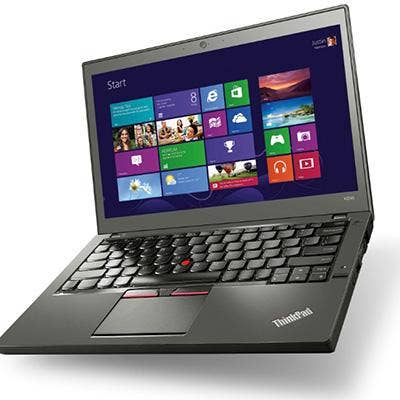
Where do you take ThinkPad from here?
Clearly, ThinkPad is an iconic brand. And to be honest, from my perspective, we have not utilized it the way we could have in the past. And this will change. This year is [the 25th anniversary] of ThinkPad, but this is not a one-time event for us. This is really to define the next 25 years of personalized computing, where ThinkPad -- and Think overall -- will be our brand. … We have a much broader lineup around Think on workstations and desktops. And then clearly on the ThinkPad line. But also our smart office strategy will be under the Think umbrella. And Think stands for something, in terms of quality, in terms of innovation. But also in terms of the services we are providing, together with the channel, to customers around Think. So Think for us is the core branding around commercial computing, infrastructure computing, end to end.
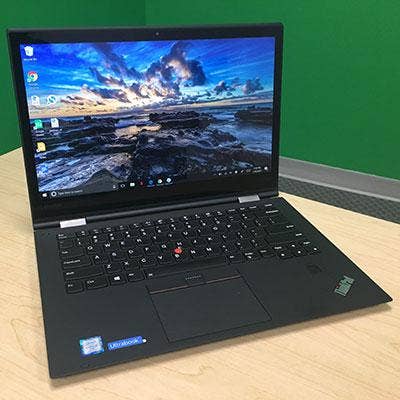
What in particular could change with the ThinkPad in the future?
[We'll be] adapting more consumer-type of capabilities into the commercial portfolio. And the reason is that we see that, first of all, there's a new generation of people using the product. And second is that the usage model, between a private notebook and a commercial notebook in modern enterprises, is actually blurring. If you are traveling for your company, you will use this product maybe also to watch a movie or to organize your personal pictures. So we want to create an experience on our commercial products that is not necessarily tailored for gaming, but for also enjoying this product and the experience for every part of how you interact with the product. And you will see this in terms of materials, you will see this in terms of capabilities we will put into ThinkPads going forward. …
You will see that ThinkPads will look a little bit more like the Yoga. It will still have the ThinkPad design, but it will adapt materials [for being] thin and light, specifically. We, as an example, have had for quite some time the Yoga design also in the ThinkPad. But we will drive the Yoga design to a level that it is even more giving you the experience of a tablet, as an example.
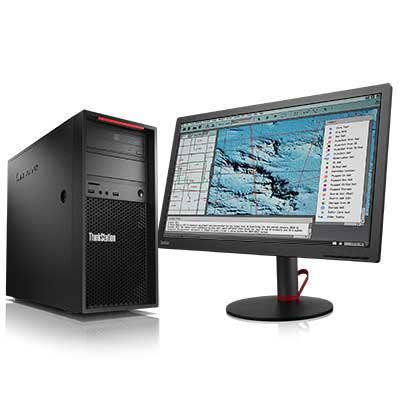
What makes workstations a big opportunity for partners?
It requires deep understanding of the industry to bring it successfully to market, and also make it valuable to the customer. And we see that partners have this deep industry expertise. They work with customers a lot on the engineering side, very deeply on an ongoing basis, on providing support. That's clearly something where we really need the channel to tailor our products for the specific use cases of the customer. And we believe it's a high-margin opportunity for the channel, and therefore we also want to reward the channel very strongly on these products to drive that growth. We believe we have a portfolio now and going forward that is very competitive, or even exceeding our competitors' capabilities. And quite frankly, the channel is the core go-to-market engine. But we do have dedicated presales and post-sales teams, that are working with the channel to really make sure the implementation at the customer is working seamlessly. Because we recognize it's a more complicated product.
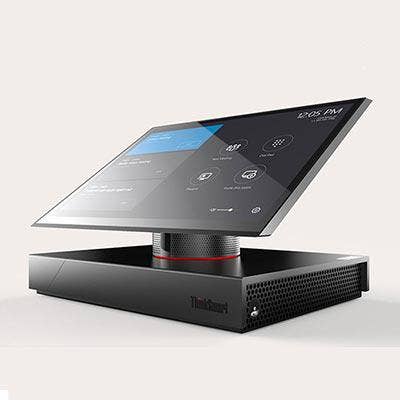
What are the other major opportunities on the Lenovo PC side for partners?
The product that I believe has the greatest service opportunity going forward is around our initiative into smart office. We launched the first product [the ThinkSmart Hub 500], but this is just the first of many products that we'll bring to market. It's a PC-based videoconferencing solution. And the first step is with Microsoft [Skype for Business], but going forward we will expand that to other players as well. But we also bring products to market around smart office that are not necessarily only the PC in the middle, but also an entire suite of products that you can imagine in an intelligent conference room or huddle room.
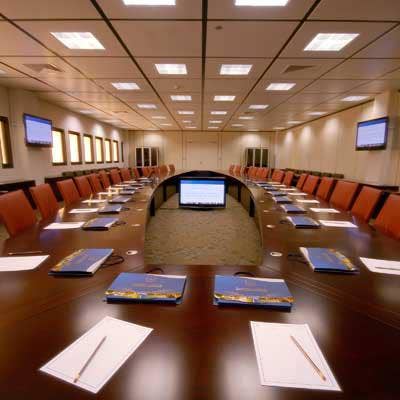
What are your differentiators in smart office?
We believe that we will approach this from a PC perspective. The market is still very immature -- still evolving. And I think it is also not as optimized, in terms of the portfolio, as it will be in a couple of years. And we want to strongly participate in this one because we believe we have the core capabilities from a technology perspective. It is a market that is not far away from our traditional PC market -- an adjunct market. But it is clearly a market that has different decision-makers, and it requires different capabilities in the channel. …
It's really driven by the new workforce coming, and customers evolving in much more flexible work-life models. Where people work more from home, and when they come to the office, they don't come to the office to sit in a cubicle, they come to the office to interact. Interaction [happens] more in a creative way, and on a global scale -- either because the company itself is global, or the company has global customers, partners or suppliers. So you have to use technologies that are really supporting collaboration in a much different way. It's also a new generation that is looking for new workspace technologies when they make a decision about their employer. … This is a shift that I believe provides significant opportunity for the channel, from consulting to the implementation to the ongoing maintenance of these conference rooms.

Are there additional reductions in staff ahead for Lenovo in North America?
On an ongoing basis, we are constantly looking at the efficiency of our company. And the reductions in North America have been very small, and I think most of it was more efficiency-driven in the back end. We have not done any reductions in terms of channel- or customer-facing resources. Because we feel that we have a lot of growth opportunity together, so we don't want to change that investment that we've taken. On our side, we keep increasing our investment in presales and post-sales resources. And clearly as we are bringing new product categories to market like workstation and smart office, we are building dedicated teams that are working with the channel partner to be able to implement our solutions in the best possible way.